The story of Corporal Jackie — the most unusual hero of the First World War
We are used to the fact that dogs and horses serve in the army together with people, but sometimes quite unusual animals, such as monkeys, turn out to be in the ranks. The story of Corporal Jackie is also unusual in that the baboon was not just next to his master at the front as a pet, but also carried out combat duties and even participated in offensives.
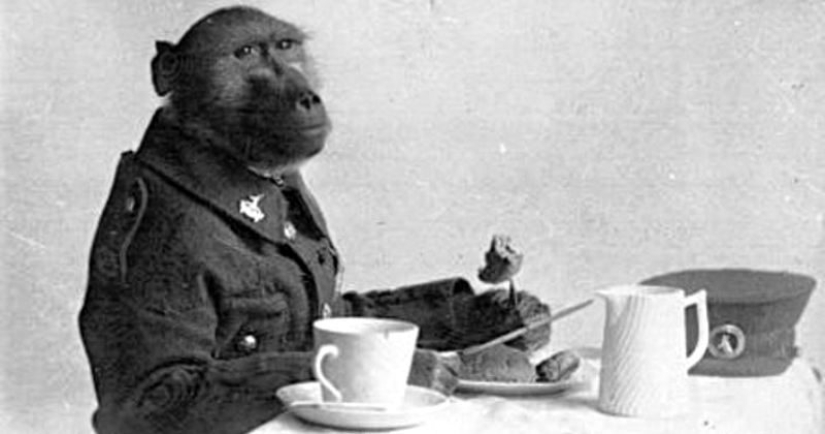
The officers receiving recruits in August 1915 at the recruiting station of the 3rd Transvaal Regiment of the 1st South African Infantry Brigade were surprised when Private Albert Marr with the number 4927 addressed them with an extraordinary request.
The recruit asked to be allowed to take a pet with him to the front — a baboon chakma named Jackie. The unusual request was granted and Albert went to the regiment stationed in North Africa, along with the monkey.
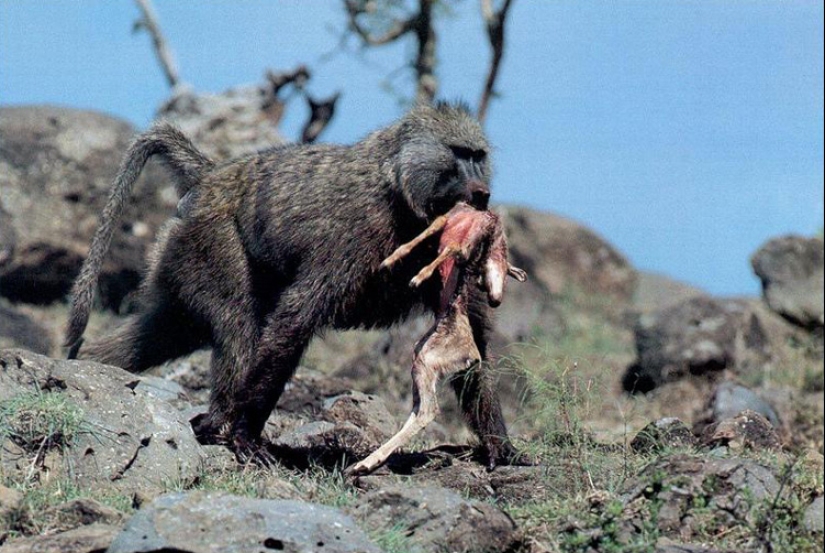
Albert and Jackie met a few years before the First World War, in a suburb of the South African city of Pretoria. Marr, walking around his farm, found a baby baboon abandoned by a pack, which he decided to take home. When the baby grew up and got stronger, he became a favorite of the Marr family, as well as their friends and neighbors. Jackie was quick-witted and not only easily amenable to training, but also tried to copy the behavior of people himself.
Albert became so attached to his pet that he could not even admit that they would have to part. So when it came time to go to war, Marr decided to take Jackie with him. Already an adult by that time, the monkey had a benevolent disposition, was obedient and unpretentious in food — what is not an ideal soldier?
Chakma baboons, or bear baboons, are fairly large primates, reaching a length of 115 cm and weighing up to 30 kg. These are strong and quite aggressive animals, capable of dealing with even a leopard alone. The case of Marr and Jackie's friendship can be considered unique, since monkeys of this species are difficult to tame and train.
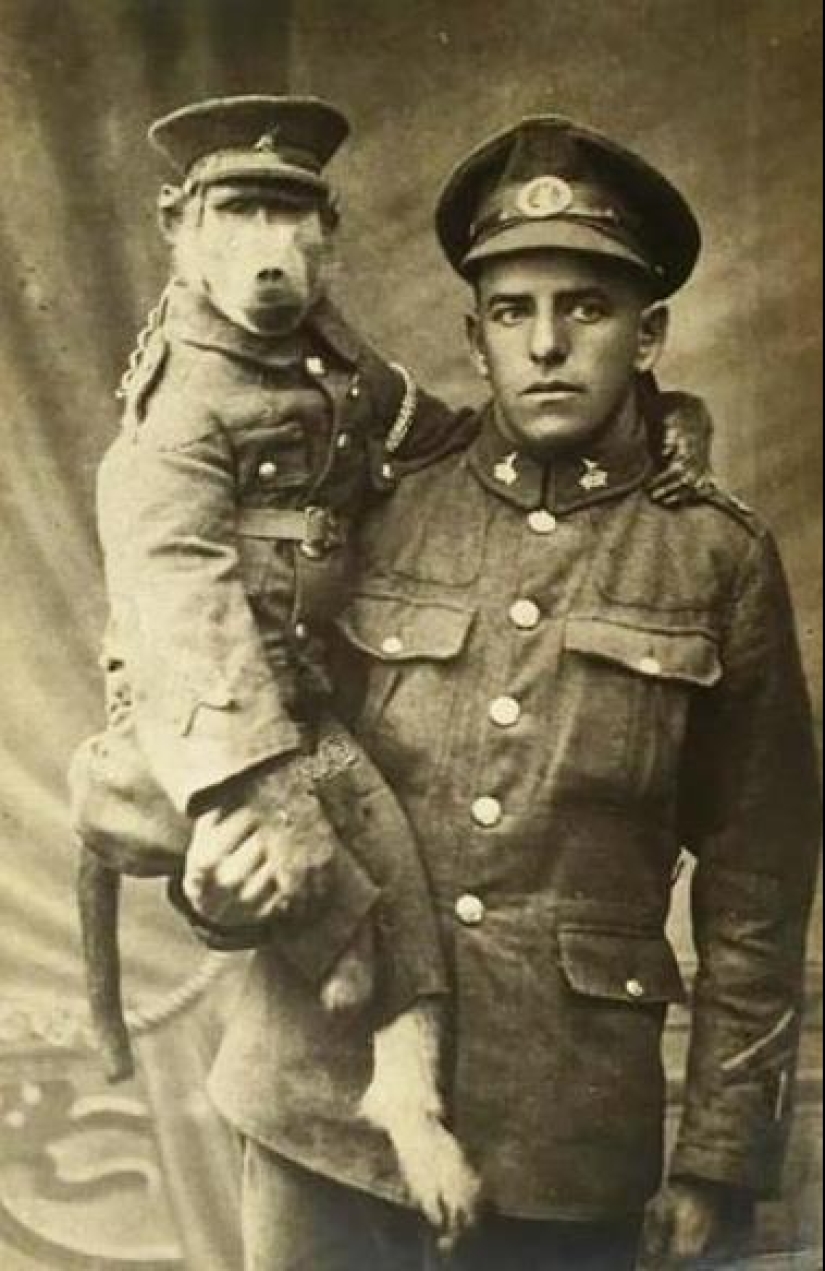
The regiment that Albert and Jackie got into was part of the Volunteer South African Expeditionary Force (SAOEF), which was almost entirely staffed from residents of the South African province of Transvaal and Rhodesia. The unit, as part of the British Army, participated in the fighting in Egypt (1916), as well as in Europe, France and Belgium (1916-1918).
Quick-witted baboon Jackie quickly got used to the simple army life. An unusual soldier went out with his master to build, participated in physical training classes, and also ate in the dining room, deftly using a spoon, fork and knife. Baboon also washed dishes after himself and other fighters, setting an example of discipline and cleanliness.
At his leisure, Jackie entertained his colleagues by lighting cigars and pipes for them and surprised them with power and acrobatic tricks. A special shape with a hole for the tail was sewn for the monkey. Like any other soldier, Jackie saluted the officers, and also clearly executed the commands "Attention!" and "At ease!".
Albert and Jackie's first battle took place in Egypt, where their regiment marched against Tariqa Sanusia, hostile to the British. The Sufi religious and political order supported Germany and the Ottoman Empire in the First World War, giving the British army a lot of trouble in North Africa.
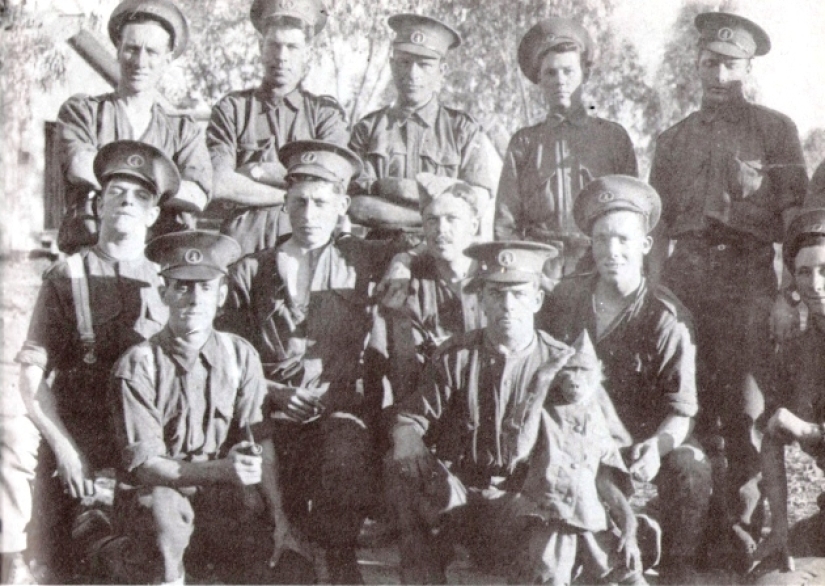
The battles with religious fanatics were very fierce and soon Marr received his first combat wound. This happened in the bloody Battle of Agagia on February 26, 1916. When the paramedics found Albert wounded in the shoulder, they saw that Jackie selflessly covered him with her body from enemy shooters, while diligently licking the wound.
After this incident, the baboon turned from an unusual mascot of the regiment into a real combat comrade. After leaving the hospital, Marr and Jackie went to the battlefields in France. Here for the first time Jackie took part together with the owner in the attack on enemy positions. But the beast was especially valuable in night patrols — sharp eyesight and hearing allowed the animal to determine the approach of danger in advance and timely notify the owner and his colleagues by special barking or pulling on clothes.
In 1918, Albert and Jackie were wounded in the Battle of Passchendaele, in Belgium. Marr was slightly wounded in the arm, but Jackie was unlucky — a fragment hit him in the hind leg, almost separating it from the body. Colleagues saw how, before the shelling, the monkey tried to build a stone defense in front of him, as other soldiers did, but could not protect himself from shell fragments.
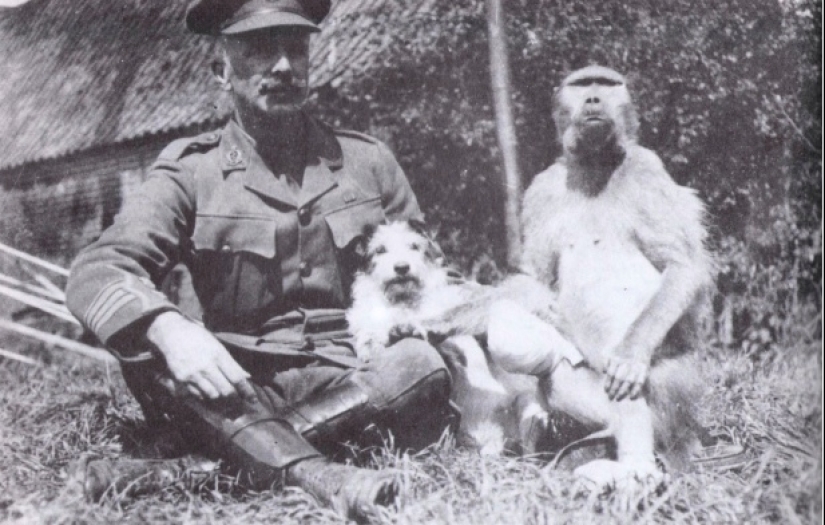
The field hospital had never encountered wounded baboons, so they could not guarantee that Private Jackie would survive. The animal had its paw amputated and was given the same treatment as other fighters with similar injuries. Lieutenant Colonel R.N. Woodsend of the Royal Medical Corps, who performed the operation, recalls this unusual case from his practice:
Fortunately, the monkey survived and a few days after the operation famously saluted officers passing by from his bunk.
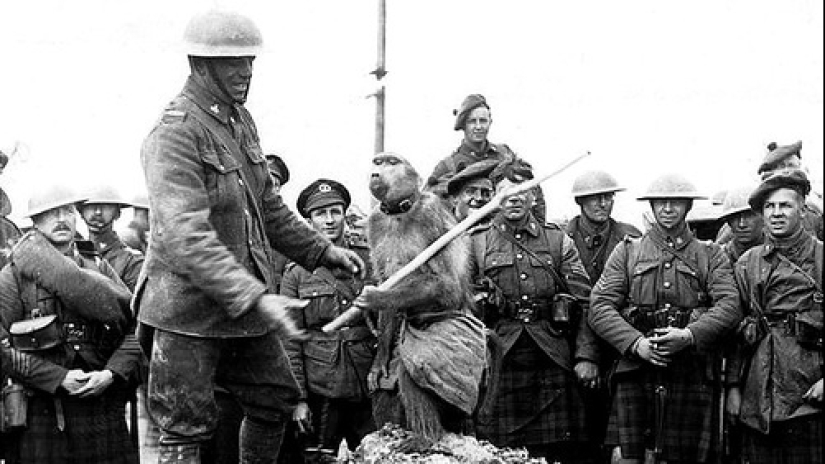
The war ended for Albert Marr and his friend Jackie on November 11, 1918. The comrades-in-arms were demobilized and sent to England, where they were greeted as real heroes. Of course, Jackie got the lion's share of fame — the baboon's photos were on the front pages of newspapers and thousands of residents of the British capital wanted to see him personally.
Everyone could see the unusual soldier at the Day of the Lord Mayor of London, where Jackie was invited as a participant in the solemn parade. We can confidently say that in 1918 Jackie became the most famous animal in the Kingdom and more was written and talked about him than about some of the country's key politicians.
But after leaving the army, Albert and Jackie's service did not end. The couple actively engaged in volunteer activities, participating in Red Cross actions on behalf of the Ministry of War and the Government of South Africa. All the pitying ones could shake Jackie's hand for half a crown, and kiss the hero for five shillings. In this way, significant sums were collected for wounded soldiers and war invalids.
After enjoying British hospitality to their heart's content, Albert and Jackie returned to South Africa in April 1919. Honors were waiting for two soldiers there — Albert was awarded a medal, and Jackie received the military rank of corporal and the right to wear insignia and stripes for wounds on his uniform. A month later, in May, Jackie the baboon became the first baboon in history to receive a state award. On July 31, 1920, at the Peace Parade in Pretoria Church Square, Jackie was presented with a Medal for Service to the citizens of Pretoria.
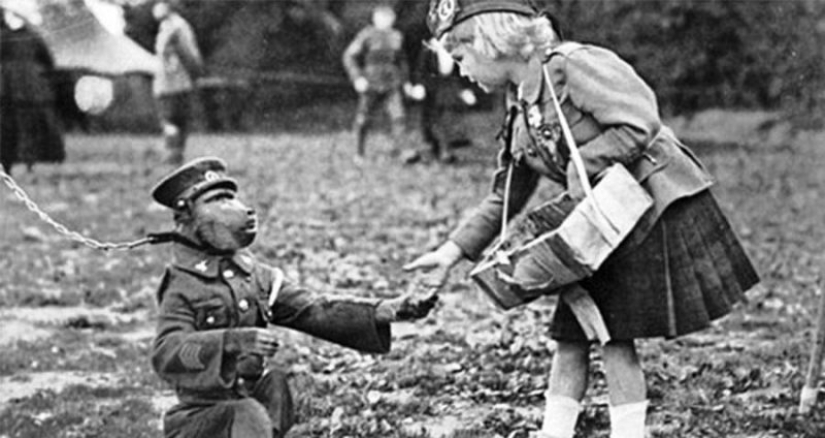
In the summer of 1919, Marr and his comrade-in-arms Jackie returned to their native farm in the vicinity of Pretoria, where they had not been for 4 long years. I would like to write that their life was long and happy, but it is not so. The baboon, who received severe psychological and physical injuries at the front, soon died of a heart attack during a normal thunderstorm. Marr buried his friend with military honors, and he himself lived a long life in which there was no place for adventures and shocks anymore. Albert Marr died of old age on his own farm in 1973, having lived 84 years.
Recent articles

Extreme gastronomy from different parts of the planet can cause tremors and awe even the most jaded consumer. Canned bread and pork ...

There are people who are able to notice beauty in every little thing around, and this skill they should definitely learn! We offer ...

Every region of the world with a fairly cold winter has its own traditional ways of heating homes. In Western European countries, ...